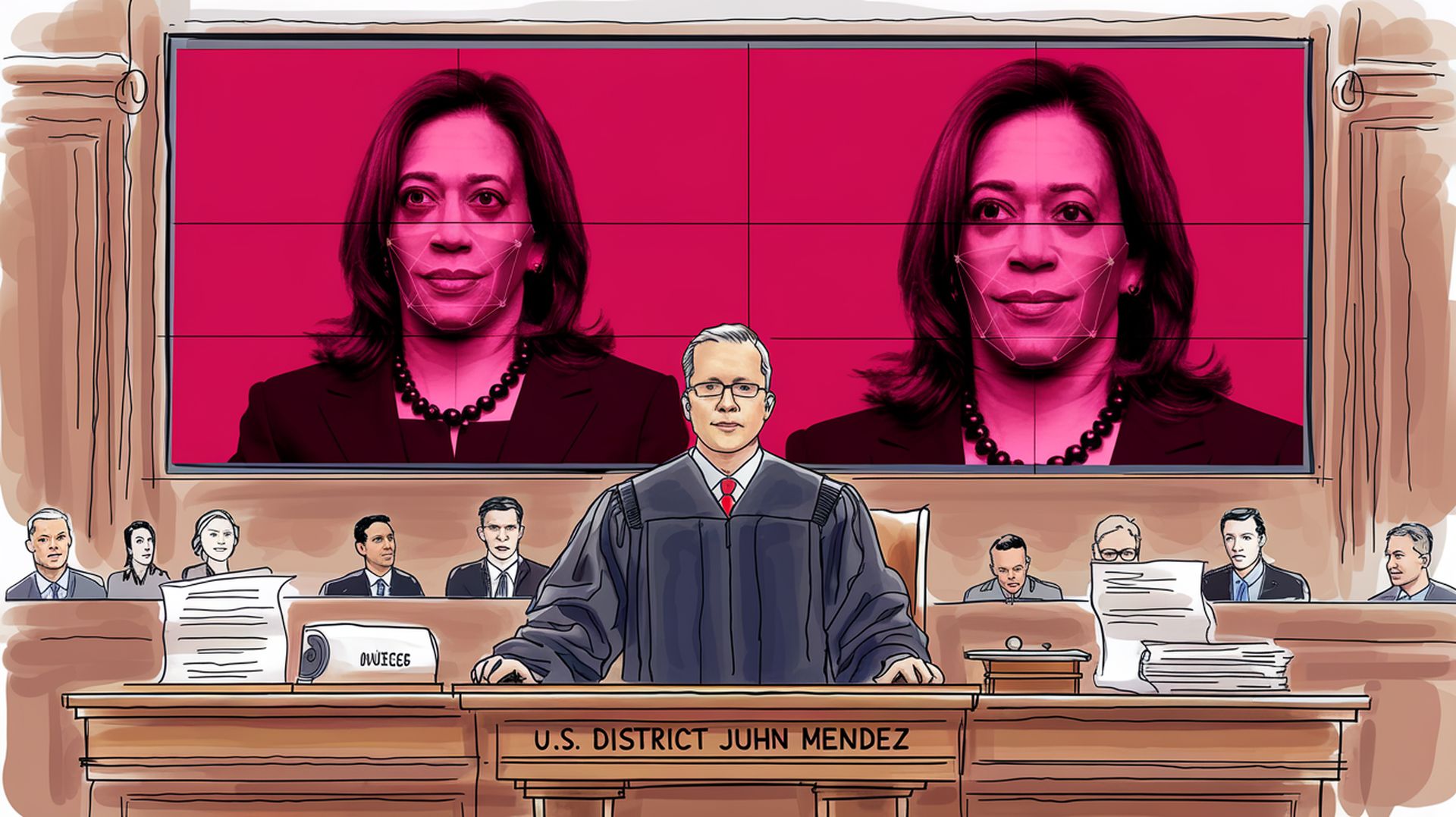Judge slams California’s AI deepfake law

A federal judge has made it invalid less than two weeks after California Governor Gavin Newsom signed his new AI deepfake law. AB 2839 was meant to shut down the spread of politically skewered deepfakes, including the AI-generated video of Vice President Kamala Harris redistributed by Elon Musk. The court ruling that the law probably violates First Amendment protections is a blow to California’s efforts to use AI to combat election misinformation.
Last month, AB 2839, signed into law, was meant to hold people responsible for spreading politically misleading deepfakes that could mislead voters. It did not police social media platforms but allowed judges to order people to remove content they had written themselves, generated by artificial intelligence. It followed mounting concerns about the rise of AI-generated political misinformation, a major concern heading into upcoming elections.
The viral Kamala Harris deepfake and its implications
The lawsuit challenging the law was filed by YouTuber Christopher Kohls, known online as “Mr Reagan,” who posted the AI-manipulated video of Kamala Harris. The deepfake was defended by his legal team, which argued the First Amendment as political satire. U.S. District Judge John Mendez agreed and issued a preliminary injunction blocking the law from being enforced. Mendez said the law was too wide and could easily be abused to crush constitutionally protected speech like satire and parody.
“Almost any digitally altered content, when left up to an arbitrary individual on the internet, could be considered harmful,”
Mendez stated. He said the law employed a broad, subjective language that imperiled free speech. While the state has an interest in election integrity, Mendez said, this law, as written, unfairly infringes upon political expression guarded by the First Amendment.
Shortly after the Dec. 12 court ruling, Elon Musk, who had mocked the new law after posting the Harris deepfake tweet, tweeted on X (formerly Twitter), ‘The court up shuts down California’s unconstitutional law invading your freedom of speech.’ Yay!” His post has gone viral since, and the online fight over the be/tween has only heated up further over the balance of free speech and regulation of AI-generated content.
Like that time Streisand sued someone for revealing her super obvious address in Malibu. That really kept a lid on it lmao. https://t.co/Av5CDlRtJ4
— Elon Musk (@elonmusk) September 18, 2024
The preliminary injunction is temporary, and whether that kind of block will last is unclear. The Office of Governor Newsom expressed that the state is confident that it can regulate AI deepfakes in the future. A spokesperson defended the law by saying, ‘We’re confident the courts will uphold the state’s ability to regulate these types of dangerous and misleading deepfakes while at the same time ensuring that these free speech rights can continue to exist.’
The ruling itself emphasizes the love of motion between new AI technology and time-honored constitutional safeguards, as fakes become ever cleverer and more difficult to differentiate. This legal battle’s outcome could shape how states regulate AI-generated content in the run-up to elections.
Featured image credit: Emre Çıtak/Ideogram AI
